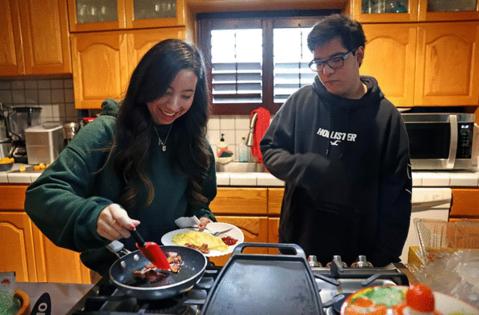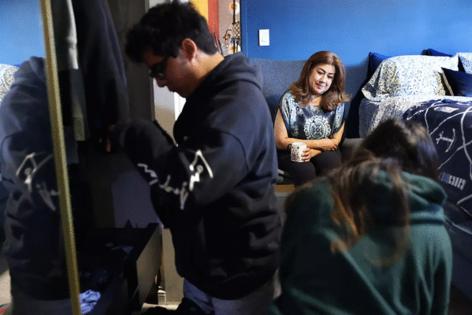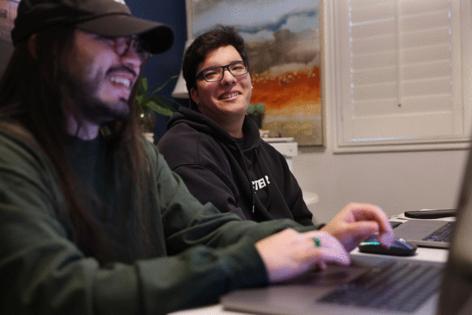People with disabilities love this program. Why are Latinos underrepresented?
Published in Lifestyles
LOS ANGELES -- It was a yearlong battle, Maribel Ahumada said, to get her teenage son into the program that changed his life.
The Gardena, California, mother was dissatisfied with the traditional system that arranges supportive services for Californians with developmental disabilities like D'Angelo Ahumada, who has cerebral palsy, epilepsy and other conditions. It has long been plagued by inequities, including lower spending on Latinos.
"Before, everybody chooses for him: 'This is what we have. This is what you get. That's it. Take it or leave it,'" Maribel Ahumada said. "Now he gets to decide."
The Self-Determination Program is an alternative option for people with developmental disabilities who get services through regional centers, a system of nonprofits that contract with the state. It gives disabled people and their families more control over how their budget for supportive services is spent. It allows Californians to choose and hire companies or individuals that are not already vendors with the regional centers — and to pay them higher rates to better retain workers.
Eighteen-year-old D'Angelo Ahumada wants to build up an audience as an online influencer, because "you get to do your own thing," he said. "It's freedom, I guess."
So the family hired a school mentor he clicked with as a technology coach. He wants to pursue voice acting, so he has a personal assistant who helps him visit colleges and scope out their programs.
And if he feels like stopping by the mall, meeting a friend, or going to the movies — the kind of freedom readily enjoyed by his triplet brother and sister — having an assistant means he no longer has to wait on his mother.
"He feels now that he matters," Maribel Ahumada said. "That his wants and wishes matter."
The California bill that launched the program, SB 468, said it would also help people from "traditionally underserved" communities get what they needed.
But nearly three years after the program became widely available, Latinos like Ahumada are underrepresented, making up just 20% of those participating as of December. That is less than half of the 41% they make up among eligible Californians getting services through the Department of Developmental Services. Black people are also underrepresented, as are people who primarily speak Spanish.
...continued
©2024 Los Angeles Times. Visit at latimes.com. Distributed by Tribune Content Agency, LLC.












Comments